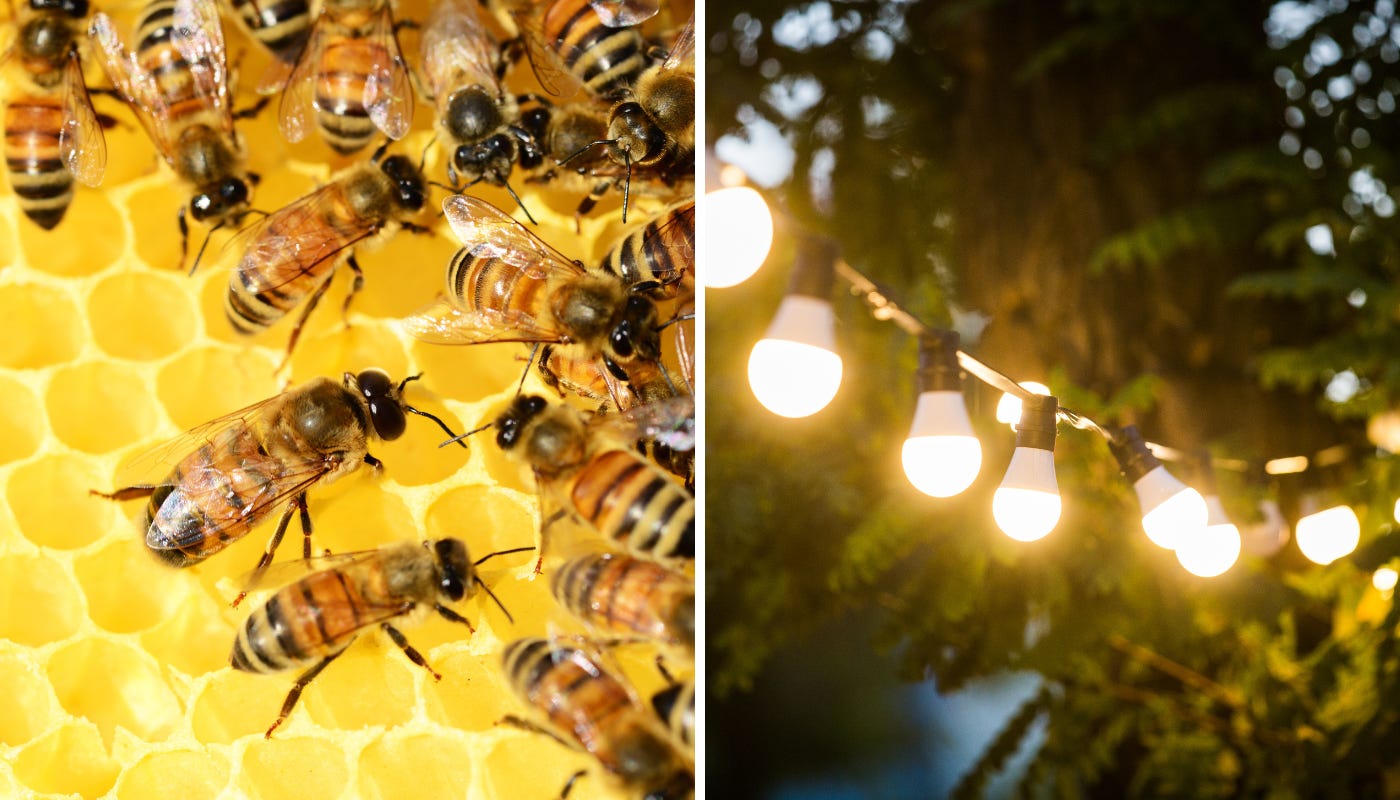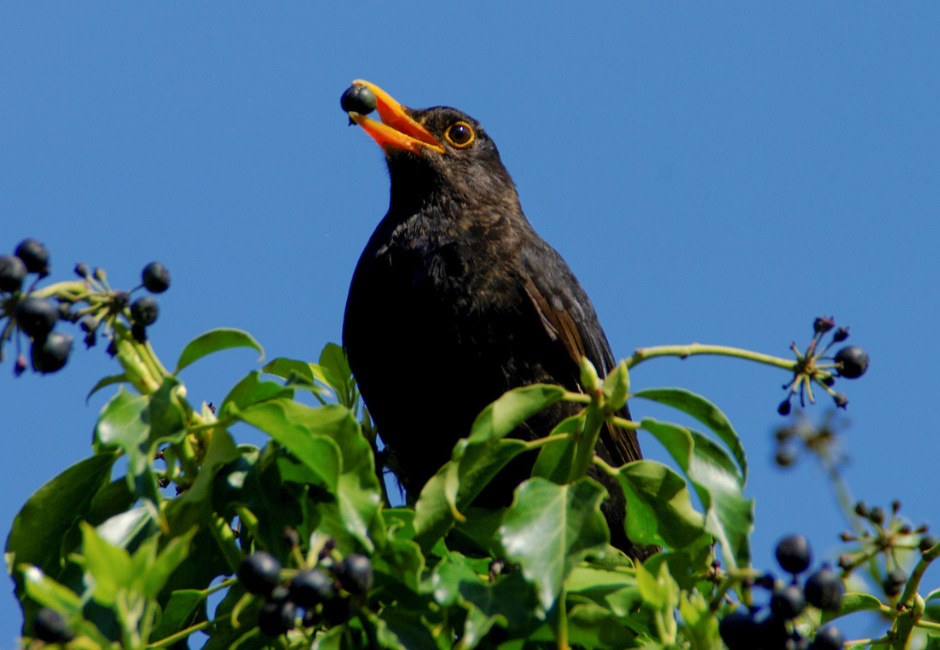One Planet News: Sleep, Bees and Circadian Rhythms
Why sleep is important for honey bees and for crop pollination
by Annette J Beveridge
WE ALL know how difficult it is to function after a poor night’s sleep with lights from phones and electronic devices having a negative impact on our sleep patterns but did you know that bees suffer from disturbed sleep too?
Artificial light from streetlights or garden lights can disrupt the circadian rhythms of honey bees too.
A new study led by PhD candidate Ashley Kim and Professor James Nieh in the School of Biological Sciences found that artificial lights affect the pollinating power of honey bees.
Kim said: "Our research shows just how sensitive honey bees are to changes in their environment, particularly to something as seemingly benign as artificial light.
"By disrupting their circadian rhythms, we see clear evidence of reduced sleep periods. This raises significant concerns, not only for bee health but also, for the health of ecosystems that depend on them for pollination."
Read more: Study reveals UK adults lack connection with nature
Honey bees play a vital role as pollinators of wild plants and crops and provide services to support global food security and the stability of ecosystems. Without pollination, crops would be lost.
Sleeping bees typically remain still only exhibiting subtle movements if disturbed by other bees. Bees are used to darker environments with little light coming into the hive. Sometimes, bees sleep outside - if they form ‘bee beards’ on hot evenings, (happening more frequently due to climate change) or when swarming.
If a bee experiences poor sleep and its circadian rhythms are disrupted, it demonstrates problems in behaviour. Sleep is crucial for the health of a hive as they depend on the intricate communication system called the ‘waggle dance’ which is where bees inform others about the location of food sources.
Without sufficient sleep, the dance is not as efficient and bees do not communicate as well.
Read more: Will a human rights approach to coral reef protection work?
Kim said: "Even without analysing the data you can tell there was something going on… the bees that were under constant light slept less.
"The effects of light pollution on biological systems is fairly unknown and something people normally don't think about, which is why it's a rapidly evolving field."
Bees exposed to continuous light slept less and were more frequently disturbed by their peers compared to those kept in normal darkness. The bees under continuous light exhibited a preference for darker areas within their experimental cages.
Nieh said: "Understanding the factors that affect bee health, such as light pollution, is essential for developing strategies to protect pollinator populations.
"Light pollution is a growing issue, with artificial light now covering a quarter of the Earth's surface, and this research sheds new light on how such disturbances may be harming pollinators."
Watch out for the next instalment of wildlife-friendly gardening soon.
Wildlife friendly gardening this winter and beyond
This is the first in a series of how to care for nature and your garden. Take those first important steps. We have so much to share with you.



